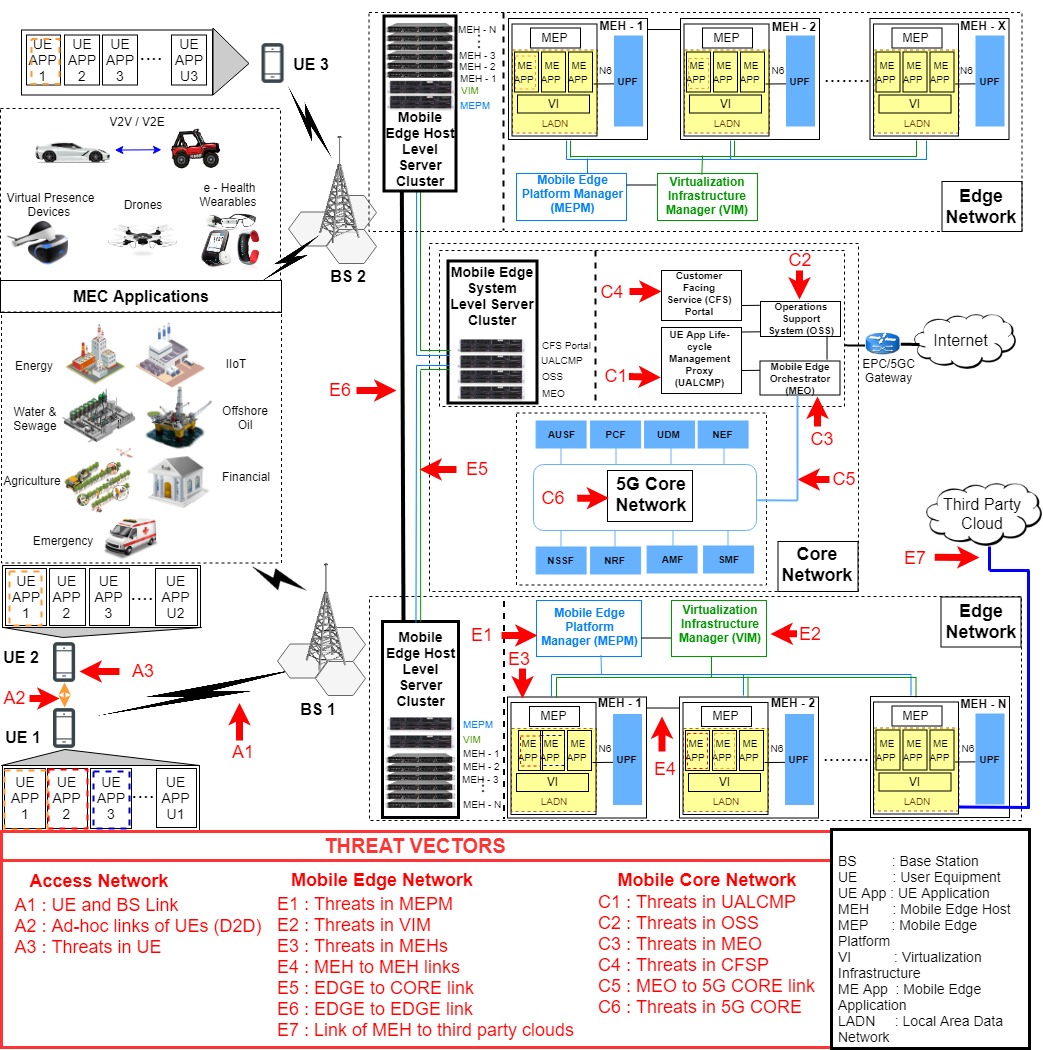
Survey on Multi-Access Edge Computing Security and Privacy
- Post by: Pasika Ranaweera, Anca Delia Jurcut and Madhusanka Liyanage
- February 26, 2021
- Comments off
The European Telecommunications Standards Institute (ETSI) has introduced the paradigm of Multi-Access Edge Computing (MEC) to enable efficient and fast data processing in mobile networks. Among other technological requirements, security and privacy are significant factors in the realization of MEC
deployments. In this paper, we analyse the security and privacy of the MEC system. We introduce a thorough investigation of the identification and the analysis of threat vectors in the ETSI standardized MEC architecture. Furthermore, we analyse the vulnerabilities leading to the identified threat vectors and propose potential security solutions to overcome these vulnerabilities. The privacy issues of MEC are also highlighted, and clear objectives for preserving privacy are defined. Finally, we present future directives to enhance the security and privacy of MEC services.


